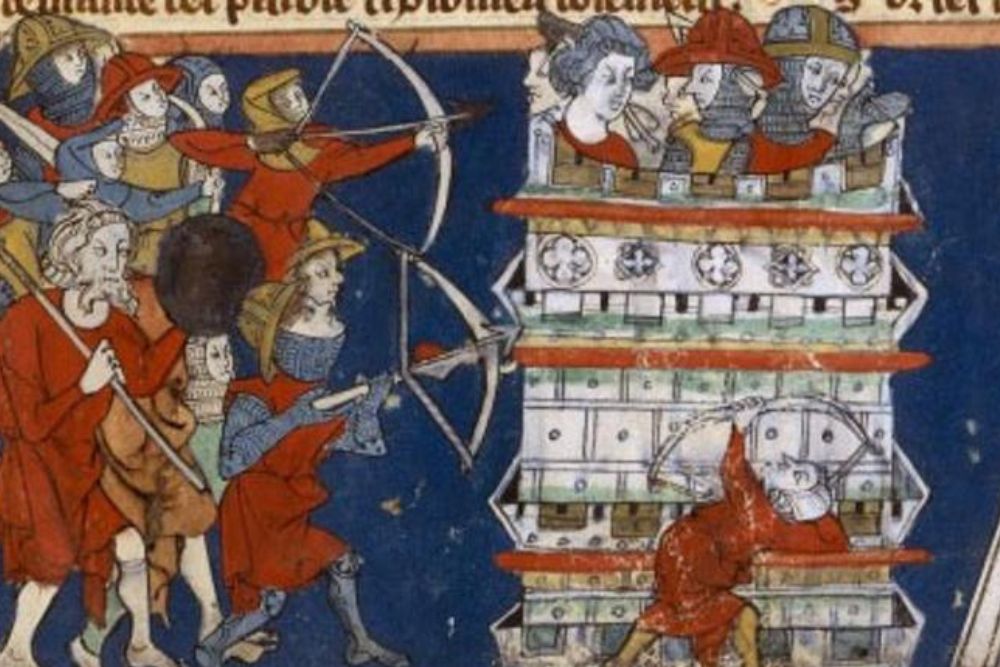Wilikin of the Weald: England’s Forgotten Guerrilla Leader

England’s medieval history is rich with tales of kings, knights, and legendary outlaws such as Robin Hood. Yet buried in the chronicles of the early 13th century lies the story of a real figure who rallied archers and woodsmen to fight foreign occupiers: William of Cassingham, better known as Wilikin of the Weald. Though far less famous today, Wilikin’s exploits were recorded by contemporaries and earned him recognition as a national hero in his own lifetime.
A Kingdom in Crisis
The early 1200s were marked by civil war and foreign invasion. King John’s heavy taxation and political blunders had driven many English barons into rebellion, leading to the First Barons’ War (1215–1217). In 1216, John died, leaving the throne to his nine-year-old son, Henry III. With the crown vulnerable, Prince Louis of France – later Louis VIII – invaded with the backing of rebel barons, occupying much of southern England.
It was in this atmosphere of turmoil that Wilikin emerged. From the dense forests of the Weald of Kent and Sussex, he organised local men – huntsmen, archers, and commoners – into a guerrilla force to resist the French occupation.
Guerrilla Warfare in the Weald
Chronicler Roger of Wendover described Wilikin in his Flores Historiarum:
“A certain youth, William by name, a fighter and a loyalist … who despised those who were not, gathered a number of archers in the forests and waste places [of Kent and Sussex] … all of the time they attacked and disrupted the enemy, and as a result of their intense resistance many thousands of Frenchmen were slain.”
Wilikin’s tactics were unconventional for the time. Instead of seeking open battle against French knights, his men relied on ambushes, surprise attacks, and archery from the cover of woodland. They struck supply lines, harassed patrols, and set fire to enemy camps before melting back into the forests.
One episode tells of Prince Louis’s retreat. As the French attempted to march south, Wilikin’s men attacked near Lewes, forcing them into Winchelsea. There, Louis’s troops were trapped and nearly starved before being rescued by a French fleet.
In 1217, Wilikin again made his mark when Louis returned to besiege Dover Castle. Wilikin, alongside Oliver fitz Regis, attacked and burned the French camp. The shock of this ambush reportedly persuaded Louis to abandon Dover and land instead at Sandwich – a decision that proved costly when his fleet was soon defeated by the English navy.
Victory and Reward
The wider war culminated in decisive victories for the royalist cause: the Battle of Lincoln in May 1217 and the Battle of Sandwich that August. These defeats forced Louis to renounce his claim to the English throne in the Treaty of Lambeth (1217).
After the conflict, Wilikin did not fade into obscurity. Instead, his loyalty was rewarded by the crown. He was granted a royal pension and became known as the Warden of the Weald. Later, in 1241, he was appointed Sergeant of the Peace for Kent – an early form of law-enforcement office. He continued to hold this position until his death in 1257.
Between History and Legend
Although contemporary chroniclers praised Wilikin’s deeds, they sometimes exaggerated. Wendover’s claim that his men slew “many thousands” of French soldiers is almost certainly an overstatement. Likewise, later retellings added folkloric details – of supernatural fears among the French, or of Robin Hood-like generosity – that cannot be firmly traced to early sources.
Still, the essence remains clear: Wilikin commanded a disciplined band of archers whose guerrilla warfare disrupted a powerful foreign army and contributed to the survival of Henry III’s fragile throne.
Legacy
Wilikin of the Weald represents an early example of the military importance of English archery, decades before the longbow became famous at Crécy or Agincourt. His men demonstrated how mobility, local knowledge, and the skill of common archers could match – and even overcome – heavily armoured knights.
Unlike Robin Hood, Wilikin was no myth but a flesh-and-blood leader, acknowledged by his contemporaries and honoured by his king. His story reminds us that England’s defence did not always rest solely with monarchs and magnates, but also with determined local leaders who rose from the forests to shape the fate of their country.
Sources
- Roger of Wendover, Flores Historiarum (early 13th century).
- Matthew Paris, Chronica Majora (mid-13th century).
- Carpenter, David A. The Minority of Henry III (Oxford, 1990).
- Prestwich, Michael. Plantagenet England, 1225–1360 (Oxford, 2005).
- “William of Cassingham.” Oxford Dictionary of National Biography.
- Kent Archaeological Society: “A Worthy Man of English Blood: William of Cassingham” (2011).
- The Freelance History Writer: “Willikin of the Weald: A Forgotten Hero of England” (2016).